- Home
- neetha Napew
The Web Page 13
The Web Read online
Page 13
fist against the window.
Looking behind her, seeing the angry eyes of the man who held on, Sarah
worked the transmission into
reverse. She accelerated, the rear end of the Ford smashing into the
motorcycles, her body lurching as she stomped on the brakes. She forgot
the clutch; the engine died. The man still hung on, hammering against the
window. She depressed the clutch with her left foot, working the key
again. The engine wasn't catching. She could hear gunfire, shots pinging
against the hood of the truck. She sucked in her breath, almost screaming;
there was a smashing sound, of glass. She saw what the bullet had hit—the
right-hand outside mirror was gone.
She tried the key again, murmuring, "Please—start— please!"
The engine rumbled to life and she put the stick into first; then as she
started downward pressure on the gas, she popped the clutch, the truck
lurching ahead under her. She glanced into the rear-view—the bikes were a
mass of twisted metal behind her, jammed into the trees like paper clips
into a box.
The man clinging beside her was still hammering on the glass. Another of
the Brigands threw himself toward the hood. Sarah cut the wheel hard
right, and the man slid away.
There was more gunfire, the window behind her head spider-webbing with a
bullet hole, but not shattering.
She kept driving, the man behind her hammering on the glass with his head
now, screaming at her. She had to gel away. A stray bullet could hit the
gasoline in the back of the truck, could kill her—and what would happen to
Michael and Annie.
She couldn't roll down the window to shoot the man. Instead, she
sideswiped the Ford into the trees, and the man screamed so loudly she
could hear it distinctly.
There was red blood smeared against the driver's-side
window now as she upshifted and started away; men, visible in the outside
mirror on the driver's side, were running behind her, firing. But she
didn't think they would catch her. ,
After leading the Brigands off, she returned for Michael and Annie. Then
she checked the gasoline. It would be enough to get them to Tennessee, to
the Mulliner farm, or close enough at least, she judged.
The children, for the last ten minutes, had been wrapped in the blankets
found in the back of the truck. They were sitting in the truck cab, naked
under the blankets, the heat running full.
She picked up Sam's saddle and tossed it inside the truck bed, then did
the same with Tildie's saddle.
She walked over to the animals, hugged Tildie at the neck, and stroked
Sam's forehead between the dark eyes. "I love you guys," she whispered,
kissing Tildie's muzzle, then slipping her bridle. She slipped Sam's
bridle, then swatted both horses on the rumps, sending them off aiong the
shoreline. She looked after them for an instant, manes cutting the wind,
tails high. She turned away and cried.
The air felt almost warm to her. The wind lashed back her hair as the
borrowed motorcycle rumbled between her legs, her body leaning into it as
she navigated a tight turn, and read a sign, water-stained and half
knocked down. There had been a museum there; it was now a barracks.
Natalia gunned the Kawasaki ahead. The response didn't seem like that of
Rourke's bike. Rourke, she thought.
She wondered if he had found them yet. Were they back in the Retreat,
picking up their lives together? And Paul—she smiled. He was a good man, a
good friend to them both.
"Both," she repeated into the wind, not hearing it because of the
slipstream. Words like both, or us—they were meaningless to her now.
The shore of Lake Michigan seemed remarkably peaceful to her—she watched
the smallish whitecaps far off beyond the parkways, liking her view, but
sorry for it. She squinted her eyes tight shut, then opened them,
realizing how tired she was. She had not wanted to stay with the Soviet
troops who had found her with Paul. She had driven with them toward Gary,
Indiana, then
borrowed the motorcycle, taking something called "Skyway" and winding her
way toward South Lake Shore Drive through what remained of Chicago. The
buildings stood, but not a tree grew, not a blade of grass; not a dog
yelped in the streets. There were no children. The neutron bombing had
seen to that.
She followed the drive north, toward the museum that Varakov so
religiously preserved, despite the fact that her uncle used it as his
headquarters. And the KGB headquarters were there as well. She wondered,
almost absently, if Rozhdestvenskiy had arrived yet from the Soviet Union,
to replace her late husband. There had been rumors that he had, and
unconfirmed though they had been, she hadn't doubted them.
She almost missed the turnoff, left into the small drive past the museum;
not bothering to stop, she slowed so the guards could identify her.
She made a left onto the southbound drive, then a fast left into the
museum parking lot, past more guards. The guards saluted, Natalia only
nodding.
She parked the bike at the foot of the museum steps, dismounting as she
let down the stand. She ran her hands across her face, through her hair.
"Major Tiemerovna . . . you are—"
"Alive." She smiled, looking at the face that belonged to the voice. It
was that of a young corporal, a frequent sentry at the museum. "Thank you
for caring." She smiled again. "Please, make arrangements to return this
motorcycle to Captain Konstantin with the forces in Gary, Indiana; it was
a loan."
"Yes, Comrade Major." The younger man saluted. She nodded, gesturing
toward her clothes, then started up the steps, two at a time, the pistols
shaking in the holsters
against her hips; the gun barrels with the American Eagles on them had
elicited raised eyebrows on her comrades in Indiana. She smiled thinking
about that. A gift given in friendship—she would use them from now on.
She stopped at the height of the steps to look at the sun, appearing
reddish orange over the lake.
How long would from now on be? she wondered. She thought of Rourke, and
she shook her head, tossing her hair back as she moved through the
brass-looking doors into the museum; then she started across the vast main
hall. She saw the figures of the mastodons that her uncle seemed so
obsessed with watching, studying. And beyond them, on the small mezzanine,
where she had thought she would find him, he stood, staring—at the
mastodons.
There were men and women moving about the main hall, office workers,
messengers. Ignoring them, she shouted, running now, past the mastodons,
"Uncle Ishmael!"
The face turned toward her as she called again "Uncle!" She saw his thick
lips forming into a smile, his arms outstretching, his uniform blouse
opening. And as his arms expanded toward her and she took the mezzanine
steps two at a time, running, his jacket opened wider, revealing the
potbelly he had always had ever since her first remembrance of him—like a
father. And like a daughter, she c
ame into his arms, hugging his neck,
feeling the strength of his arms around her.
"Natalia Anastasia," he murmured.
"Uncle." And she held him tightly.
"You are well, child?" he asked, folding her in his right arm, turning to
stare across the museum's
great hall.
She stood beside him. "Yes, Uncle—I am well."
"The storm—when I heard that our troops found you, my heart—if an old
man's heart can sing, then mine did," he said, not looking at her.
She studied his face.
"When I did not receive word from Chambers, the American president, I was
frightened. For you."
"John Rourke flew all of us out of Florida, Uncle; he helped Paul
Rubenstein find his parents. We took off just as—"
"Just as the final tremor hit. Thank—" He looked at her and laughed. "Yes,
thank Lenin's ghost, child." And he laughed again. "That man, the mole
agent who accompanied you when our troops found you, I assume he was Paul
Rubenstein, the young Jew?"
"Yes, Uncle," she answered, her voice low, looking away. "I couldn't—"
"Betray a friend? I would not have expected you to, child. But I need to
know. It is important. Is it the young—"
"Yes. It was Paul Rubenstein," she told him, fishing in her bag for her
cigarettes, finding one, then a lighter, working the lighter, and then
inhaling the smoke deep into her lungs.
"Such a bad habit—this smoking. You do it more since the death of
Karamatsov."
"I know." She smiled, exhaling the smoke through her nostrils, watching it
hang on the air for a moment, then begin to dissipate.
"You may see Rourke again—soon. Does this distress your
"He's been captur—"
"Captured? Hardly. I think he is more ghost than man, sometimes. No. But I
must speak with this man of yours."
She felt her hand trembling as she touched the end of the cigarette to her
lips, inhaling the smoke. "He is not—"
"The wrong phrase, then." Varakov smiled. "Can you find Rourke for me?"
"Uncle, I—"
"I would not ask if it were not of vital importance. I need someone who
has honor, someone who—I will explain it all to you later, Natalia. You
cannot find him?"
"I do not know where to look, Uncle," she answered. "The storm—he went
into it, to search for his wife and children—"
"Alone. And he sent this Rubenstein with you, to care for-you?"
"Yes. I tried to tell him I could—"
"It matters little, child, to a man who loves a woman, that she can care
for herself, perhaps better under some circumstances than he could care
for her^ or have her cared for. He did what I would have done. He has two
lives, and is loyal to them both. He pursued one while he sent the other
of his two lives under the care of this man who seems to be his best
friend. He should be Russian, this Rourke."
"I wish he were." She smiled, then looked away.
Her uncle, Natalia not looking at him as he spoke, said, "You will give me
as complete a description as possible of Rubenstein, of the vehicle he
drove—"
"A motorcycle—like Rourke's, only blue."
"A motorcycle—only blue, yes. And the direction in which he would be
traveling. Even now Rozhdestvenskiy
is rerouting my retreating troops, forming a strike force. I must talk
with this Rubenstein in order to find Rourke. He has a place where he
operates from—and this Jew can find it for me. I must talk with Rourke."
"Why?" She looked at her uncle then.
"You must trust me—that Rubenstein will not be harmed, nor will Rourke.
And while my men search for this young man, I have a job for you. It is
perhaps the most dangerous mission you have ever had."
"Where must I go, Uncle?"
"Into Rozhdestvenskiy's private office. Walk with me and we shall discuss
it."
Her palms sweated as she stubbed out tbe cigarette in a pedestal ashtray,
then followed him slowly—because his feet;hurt, she could tell—down the
steps.
As he leaned back in his chair, the telephone cradled beside his left ear,
against his shoulder, Nehemiah Rozh-destvenskiy studied his face in the
reflection of the mirror opposite his desk. He studied the toes of his
shoes; they sparkled.
"Yes," he answered into the receiver. "Yes, Comrade. ... I cannot hear
you. . . . The connection is ... yes—now. Work goes ahead on the Womb
construction. ... I have already begun martialing forces to restart the
factories needed. . . . No, Comrade, I have not made copies of the Eden
Project documents. Should they fall into the wrong hands . . ." He
coughed, covering up, he hoped, the fact that he had been about to
interrupt Anatol Tporich, the supreme head of the KGB. "No, Comrade. A
courier even now brings to your offices a copy of the abstract and my
initial report of the findings. There can be no mistake. The factories
will work four six-hour shifts to keep the laborers and technicians fresh.
They will be housed in the factories and not allowed outside contact... .
. And—" He coughed again, to cover another interruption. "Yes,
Comrade—only KGB personnel . . . No, Comrade—not Major Tiemerovna. I
agree that-her loyalties may lie—** Tporich was lecturing him about
security and Rozhdestvenskiy disliked anyone lecturing him on a subject at
which he himself was so expert. "I will be constantly vigilant, Comrade.
... am losing your voice, Comrade!" There was much static. High-attitude
bombers were being used as communications relays for overseas radio
transmissions with all satellites down or out of service since the Night
of the War. "There ... I hear you. Yes, Comrade." Rozhdestvenskiy lit a
cigarette, studying his gleaming teeth in the mirror for a moment as he
did. "Yes. ... I realize, Comrade, how little time remains. The Womb will
be ready. . . . This I swear as a loyal member of the party."
The line clicked off, dead.
Rozhdestvenskiy studied the abstract of the Eden Project again. It was
clear, concise, but incomplete. He needed more information. But he had not
told Tporich that. He would find out what he needed to know in time. He
had to, in order to live.
And to live—he had always felt—was all. After life, there was nothing.
Rubenstein felt better. He was making better time. The weather was almost
warm again as he moved through Kentucky, nearing the Tennessee line, the
Harley eating the miles since he had made the stop near the strategic fuel
reserve of which Rourke had told him.
There was slush, heavy slush at the higher elevations. And in case the
temperature dropped with evening, he wanted to get as far south as
possible. If he pressed, he could get near the Georgia line and be well
toward Savannah by nightfall. By now, Rourke should be crisscrossing the
upper portion of the state and into the Carolinas, looking for Sarah and
the children. Perhaps—Rubenstein fell himself smile at the thought—perhaps
Rourke had already found them. Should he, Rubenstein, start for the
Retreat?
He should follow the plan, he de
cided. If Rourke had designed it, it
was—Rubenstein looked up; a helicopter, American but with a Soviet star
stenciled over it, was passing low along the highway, coming up fast
behind him.
"Holy shit!" Rubenstein bent low over the machine, running out the Harley
to full throttle. He had almost
forgotten about the Russians; and what .were they doing? "Joy riding," he
snapped, releasing the handlebar a moment to push his wire-rimmed glasses
back off his nose. "Damn it!"
The helicopter was directly above him, hovering. Rubenstein started to
reach for his pistol to fire, but the machine pulled away, vanishing up
ahead of him.
Rubenstein braked the Harley, glancmg to his right; there was a dirt road,
little more than a track. He wondered if he could take it. Should he? The
helicopter was coming back, toward him, and Rubenstein had no choice. He
wrenched the bike into a hard right, sliding across the slushy highway
toward the dirt road beyond, jumping the bike over a broad flat low rock.
As his hands worked the controls, the bike came down hard under him, and
throttled up to take the incline with some speed as he started up the dirt
track.
There was a loudspeaker sounding Behind him. "Paul Rubenstein. You are
ordered to stop your machine. You are ordered to stop and lay down your
arms. You will not be harmed."
Rubenstein glanced skyward, at the helicopter almost directly over him.
He bounced the bright blue Harley up over a ridge of dirt and onto a board
bridge. There was a second helicopter now, joining the pursuit.
The loudspeaker again. "You will injure yourself if you pursue this course
of action. We mean you no harm." The voice was heavily accented. "You are
ordered to surrender!"
"Eat it!" Rubenstein shouted up to the helicopter, the downdraft of the
rotor blades making his voice come back to him. Ahead of him he could see
the second helicopter,
hovering low, too low over the road where it widened. He could see
uniformed troopers in the massive open doors of the formerly U.S. machine.

 Zero City
Zero City Freedom Omnibus
Freedom Omnibus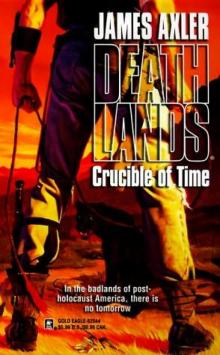 ACrucible of Time
ACrucible of Time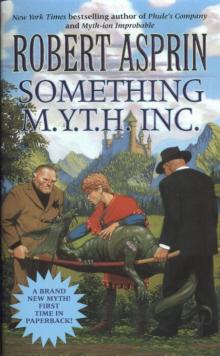 Something MYTH Inc
Something MYTH Inc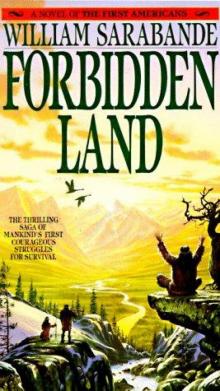 Forbidden Land
Forbidden Land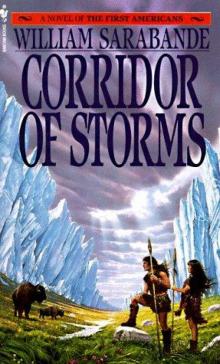 Corridor of Storms
Corridor of Storms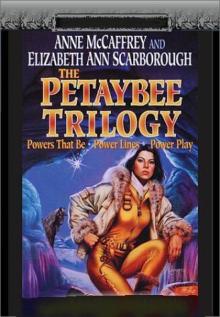 The Peytabee Omnibus
The Peytabee Omnibus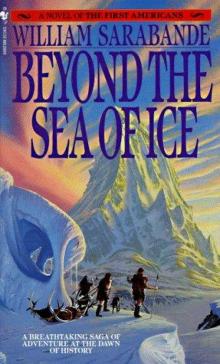 Beyond the Sea of Ice
Beyond the Sea of Ice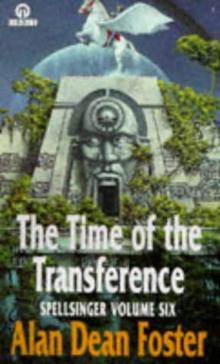 The Time Of The Transferance
The Time Of The Transferance EarthBlood
EarthBlood The Lexal Affair
The Lexal Affair The Web
The Web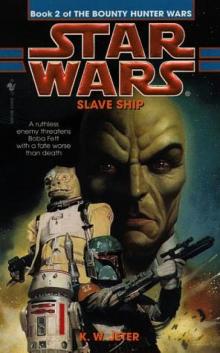 Slave Ship
Slave Ship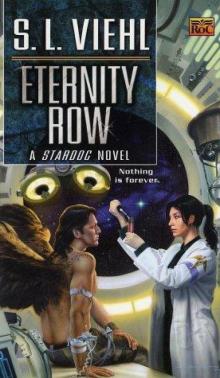 Eternity Row
Eternity Row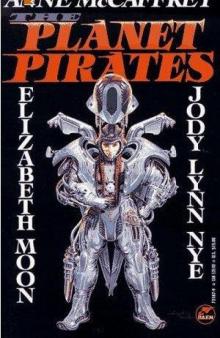 Planet Pirates Omnibus
Planet Pirates Omnibus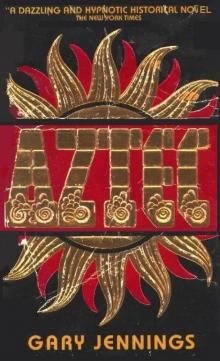 Aztec
Aztec The Awakening
The Awakening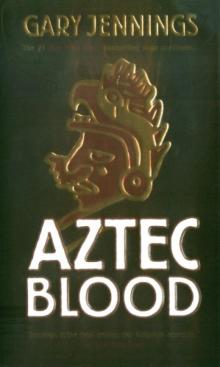 Aztec Blood
Aztec Blood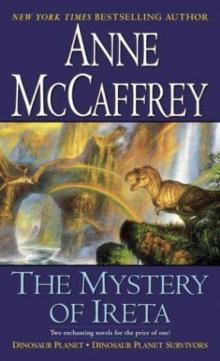 The Mystery of Ireta Omnibus
The Mystery of Ireta Omnibus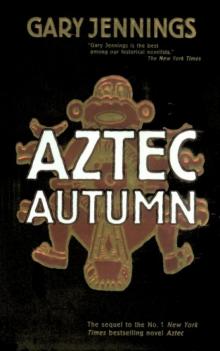 Aztec Autumn
Aztec Autumn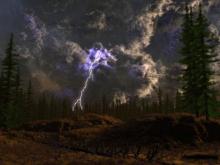 The Savage Horde
The Savage Horde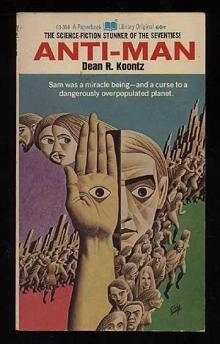 Anti - Man
Anti - Man Deep Trek
Deep Trek Starfall
Starfall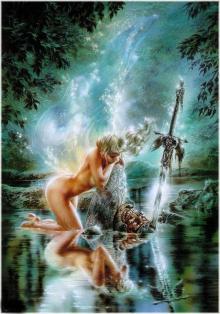 The Paths Of The Perambulator
The Paths Of The Perambulator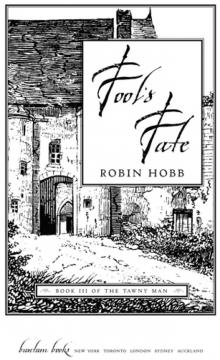 Fool's Fate
Fool's Fate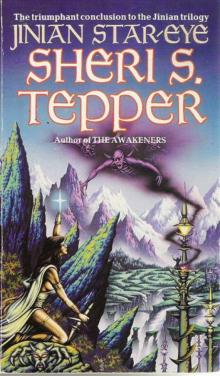 Jinian Stareye
Jinian Stareye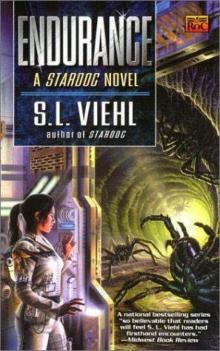 Endurance
Endurance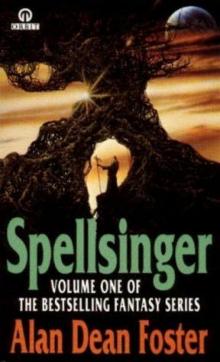 Spellsinger
Spellsinger Hybrids
Hybrids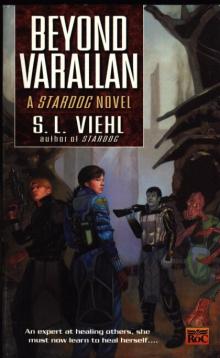 Beyond Varallan
Beyond Varallan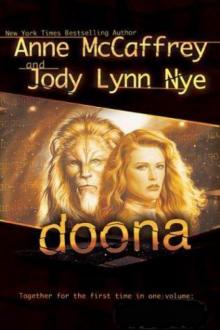 Doona Trilogy Omnibus
Doona Trilogy Omnibus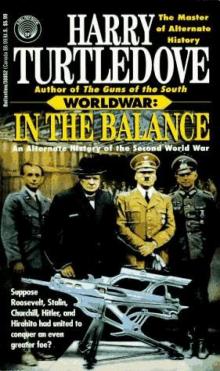 In th Balance
In th Balance Planerbound
Planerbound The Nightmare begins
The Nightmare begins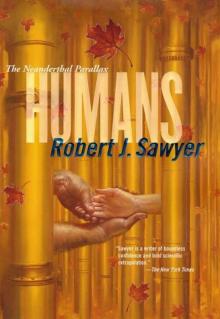 Humans
Humans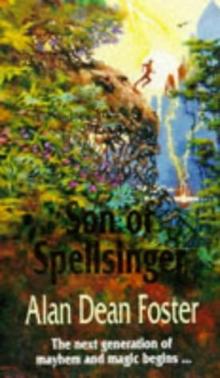 Son Of Spellsinger
Son Of Spellsinger